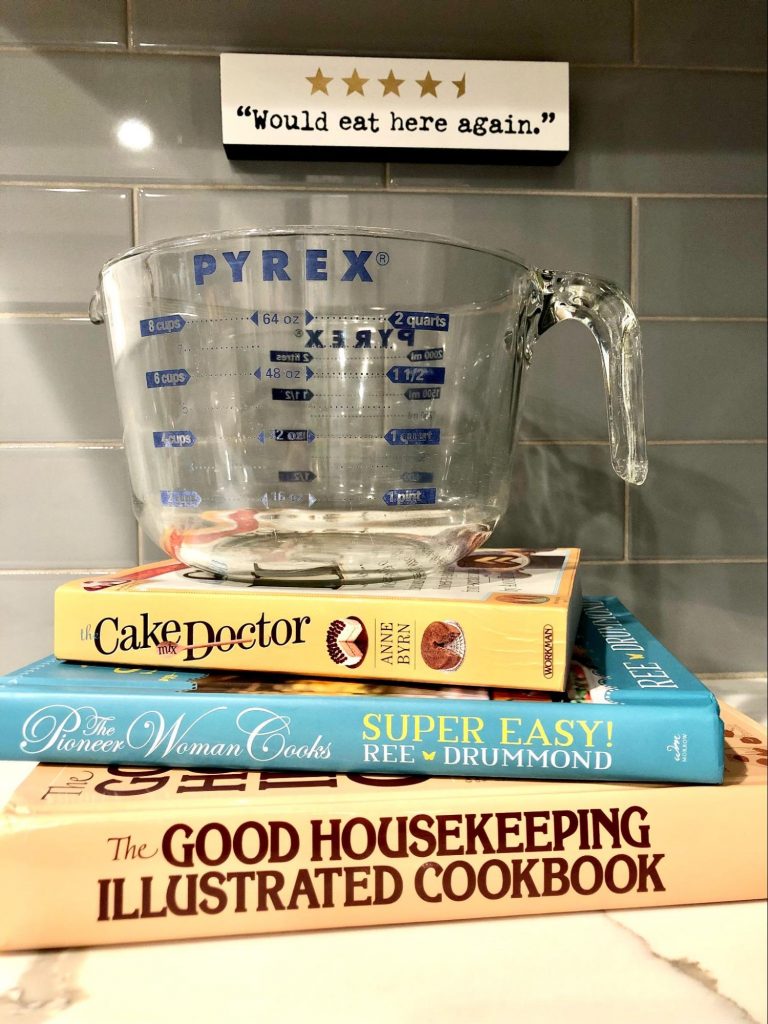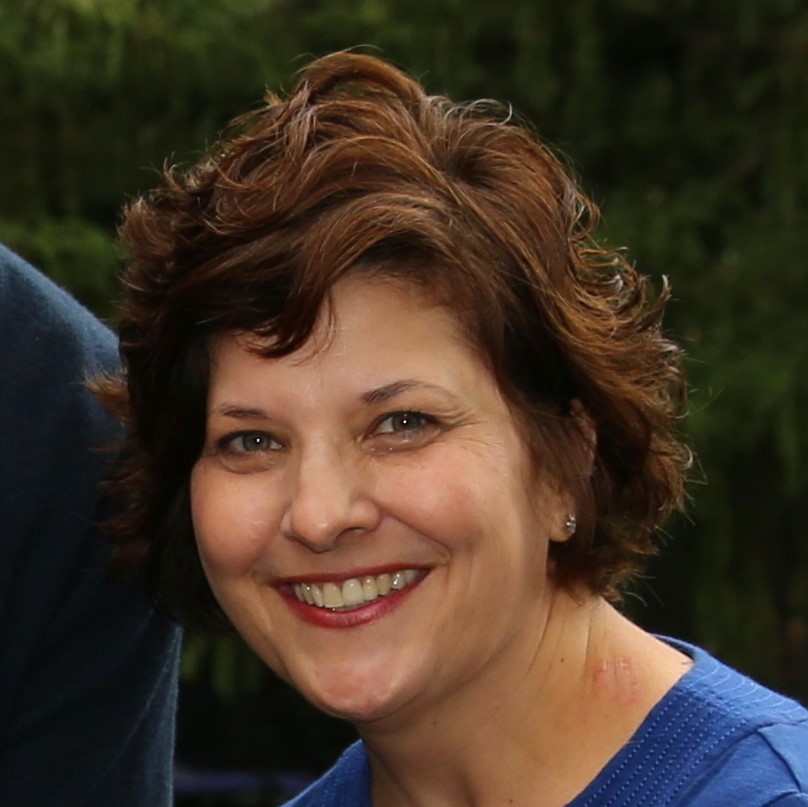12/13/2021
·Enable high contrast reading
You Need This

 Have you ever picked up an object in your house and thought, what would I do without this thing? It makes my life easier and better every time I use it. I’ve bought kitchen gadgets on a whim. My favorite is this oversized glass measuring cup; it holds 8 cups and I adore it. I love the handle and its spout. I use it when I make cake batter, stock for my chicken soup, or to pour Jello into fancy little cups. I know if this glass miracle ever breaks, I’ll need another one immediately. I have another gadget that chops up ground beef perfectly. When my sister gave it to me and said it was life changing, I thought, well I’ll decide that and it’s too gimmicky. Now I’m a total evangelist and I buy this tool and hand it out, spreading the word about its goodness. I’ll spare you my favorite painting tools and how they will improve your existence for another blog. You get the picture. There are things in your life that when you are handed or discover them, you just don’t realize how much you now suddenly need them forever after.
Have you ever picked up an object in your house and thought, what would I do without this thing? It makes my life easier and better every time I use it. I’ve bought kitchen gadgets on a whim. My favorite is this oversized glass measuring cup; it holds 8 cups and I adore it. I love the handle and its spout. I use it when I make cake batter, stock for my chicken soup, or to pour Jello into fancy little cups. I know if this glass miracle ever breaks, I’ll need another one immediately. I have another gadget that chops up ground beef perfectly. When my sister gave it to me and said it was life changing, I thought, well I’ll decide that and it’s too gimmicky. Now I’m a total evangelist and I buy this tool and hand it out, spreading the word about its goodness. I’ll spare you my favorite painting tools and how they will improve your existence for another blog. You get the picture. There are things in your life that when you are handed or discover them, you just don’t realize how much you now suddenly need them forever after.
That’s what palliative care is to me. This kind of care was a concept I never knew about, nor understood, nor chose, but thank God it was gifted to my daughter and my family. Once it was handed to us, it was life changing.
I attended a seminar with the author and professor Maria Kafalas. She considers palliative care the Marie Kondo of her daughter’s diagnosis. If you don’t recognize her name, Marie Kondo is a professional organizer with a cult following. The premise of the Kondo theory is that the objects you keep should be minimal, and your possessions should reflect only those things that you truly need and that spark joy. Maria’s analogy is so perfect.
Palliative care clarifies and organizes care for your child, even amidst living with a life-altering diagnosis. Kids with critical illnesses truly need palliative care. Our palliative care doctor is one of my favorite humans, and was the spark of our joy on so many days.
Our daughter Lauren was diagnosed with a rare form of cancer at age 7. We went for an appointment with our pediatrician to address Lauren’s aching stomach, and 5 hours later, we met with her chief oncologist. Her stomachache was diagnosed as rhabdomyosarcoma.
Throughout Lauren’s treatment, our palliative doctor and our palliative team became our lifeline. They took time to learn about Lauren, our family, and what was important to us. They knew how being at school made Lauren feel normal again, like her pre-cancer self. They knew she loved the Chicago Blackhawks and might (did) secretly judge you on your ability or lack thereof, to talk hockey or Chicago sports. They knew she had a new puppy, and that she described its breeding as half lab and half bad decision maker. One afternoon in the oncology clinic, Lauren and our palliative team discovered something about families. They came to the realization that you are either a Cocoa Krispies family, or a Cocoa Puffs one, but you shouldn’t be both. We are, and forever will be, a Cocoa Krispies family.
Our palliative team spoke “Lauren” when our oncology team wasn’t fluent. They helped us address the physical pain Lauren was in. They gave us medications and tools to make that pain bearable, and eventually, livable, to the point where Lauren could go to school most days, even after a morning of chemo. Our palliative team introduced us to pediatric psychologists and psychiatrists to help with the emotional pain inextricably linked with a hard diagnosis. As Lauren’s oncologists worked on solving for tomorrow, her palliative care team worked on solving for today.
 On very hard days, Lauren would tell me that her big worries were back. That meant she was worried about dying. The open and honest relationship that bonded us to our palliative team allowed and encouraged me to share Lauren’s big worries with them. Their words and comfort brought some respite to those hard days.
On very hard days, Lauren would tell me that her big worries were back. That meant she was worried about dying. The open and honest relationship that bonded us to our palliative team allowed and encouraged me to share Lauren’s big worries with them. Their words and comfort brought some respite to those hard days.
When the promise of more tomorrows was fading, our palliative team helped us make decisions about what Lauren wanted to accomplish and how we wanted her last days with us to look. Our most difficult and important conversations with Lauren and all of our children were at the encouragement of our palliative team. My husband and I would never have found the strength nor recognized those opportunities and moments without the support and confidence they instilled in us. I will be eternally grateful for those talks.
If you are reading this and going through some hard days, I’m so sorry. If you and your child have big worries, I’m so sorry. If the promise of tomorrow seems like a mirage, I’m so sorry. Please ask for palliative care. Ask at the start of the diagnosis, the middle, or near the end. Please ask. You’ll find respite, support, and exactly the thing you didn’t know you needed.
 Amy Graver currently works in the corporate world, and is a writer, a wife, and mom of four. Her daughter Lauren was diagnosed with rhabdomyosarcoma at age 7. Amy’s writing chronicles the journey on which cancer has taken her family. Lauren’s cancer diagnosis imposed a new reality and a new perspective on life. She is dedicated to making the cancer experience better for future families. Amy is an enthusiast of US presidential history, she aspires to be a professional seashell collector, and is absurdly competitive about things that don’t matter.
Amy Graver currently works in the corporate world, and is a writer, a wife, and mom of four. Her daughter Lauren was diagnosed with rhabdomyosarcoma at age 7. Amy’s writing chronicles the journey on which cancer has taken her family. Lauren’s cancer diagnosis imposed a new reality and a new perspective on life. She is dedicated to making the cancer experience better for future families. Amy is an enthusiast of US presidential history, she aspires to be a professional seashell collector, and is absurdly competitive about things that don’t matter.






